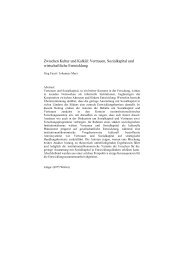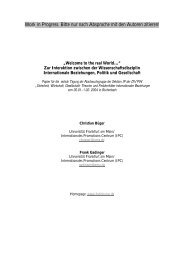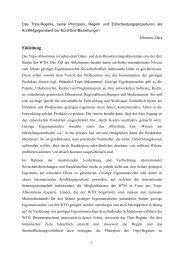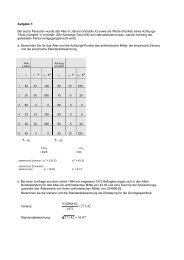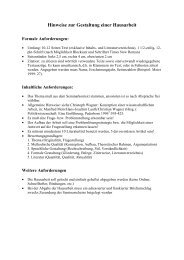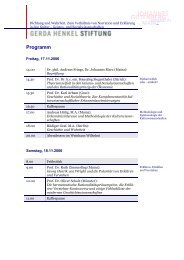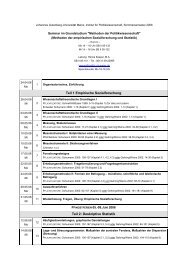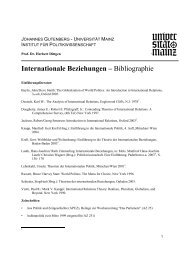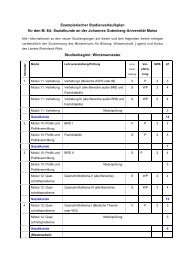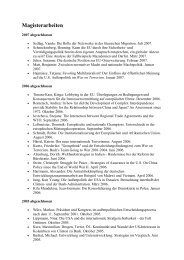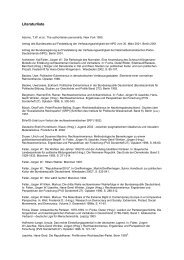Feedback Effects in Foreign Policy: A Framework for Analysis
Feedback Effects in Foreign Policy: A Framework for Analysis
Feedback Effects in Foreign Policy: A Framework for Analysis
Create successful ePaper yourself
Turn your PDF publications into a flip-book with our unique Google optimized e-Paper software.
16<br />
states by lower<strong>in</strong>g transaction costs, e.g. by provid<strong>in</strong>g <strong>in</strong><strong>for</strong>mation or explicit standards of<br />
behavior, and by <strong>in</strong>creas<strong>in</strong>g costs <strong>for</strong> non-cooperative behavior, e.g. by sanction<strong>in</strong>g this<br />
behavior or associat<strong>in</strong>g reputational costs with it. Consequently, <strong>in</strong>stitutions constra<strong>in</strong> noncooperative<br />
behavior and provide <strong>in</strong>centives <strong>for</strong> cooperative behavior without alter<strong>in</strong>g<br />
actors' preferences over outcomes.<br />
Institutions may also regulate behavior because actors have <strong>in</strong>ternalized their norms<br />
and consider it appropriate to act <strong>in</strong> certa<strong>in</strong> ways and not <strong>in</strong> others. EU members, <strong>for</strong><br />
<strong>in</strong>stance, share a multitude of norms which demarcate appropriate and <strong>in</strong>appropriate<br />
behavior, a partly implicit and partly explicit list of "do's" and "don'ts" that is not externally<br />
en<strong>for</strong>ced but <strong>in</strong>ternalized by EU members. The most fundamental of them is that EU<br />
members do not use military <strong>for</strong>ce aga<strong>in</strong>st each other (this is at the heart of the concept of<br />
"<strong>in</strong>tegration", see Deutsch et al. 1957). There are other implications of EU membership, on<br />
which research more or less agrees. EU membership, <strong>for</strong> <strong>in</strong>stance, appears to entail a general<br />
commitment to a liberal trad<strong>in</strong>g order or a particular conception of the EU's role on the<br />
world stage (Holz<strong>in</strong>ger et al. 2005: 227 ff.). Membership <strong>in</strong> other organizations and thus<br />
participation <strong>in</strong> other <strong>in</strong>ternational <strong>in</strong>stitutions appears to have comparable implications, as<br />
has been demonstrated <strong>for</strong> members of NATO (Risse-Kappen 1996), UNESCO (F<strong>in</strong>nemore<br />
1996: 34-68) and others.<br />
The regulative effect of <strong>in</strong>stitutions does not necessarily adhere to one of these<br />
mechanisms alone. As socialization research has po<strong>in</strong>ted out, <strong>for</strong> <strong>in</strong>stance, strategic<br />
adherence to <strong>in</strong>stitutionalized norms may over time evolve <strong>in</strong> <strong>in</strong>ternalization of those norms.<br />
In such cases actors beg<strong>in</strong> to adhere to <strong>in</strong>stitutional constra<strong>in</strong>ts <strong>for</strong> strategic reasons, but by<br />
do<strong>in</strong>g so over and over aga<strong>in</strong> adherence to the <strong>in</strong>stitutional norm becomes a habit and over<br />
time they <strong>in</strong>ternalize the norm so that they adhere to it not <strong>for</strong> strategic reasons but because<br />
this is just what a member of their group does (Schimmelfennig 2001; <strong>for</strong> an example see<br />
Jørgensen 1997).<br />
It is <strong>in</strong>terest<strong>in</strong>g to note that almost none of the <strong>in</strong>stitutionalist research <strong>in</strong> IR has been<br />
translated to a <strong>for</strong>eign policy perspective. Regime theory, <strong>for</strong> <strong>in</strong>stance, has been primarily<br />
concerned with the emergence and stabilization of cooperation at the <strong>in</strong>teraction level but<br />
rarely been made explicit as a framework <strong>for</strong> analyz<strong>in</strong>g <strong>for</strong>eign policies. The implications of<br />
<strong>in</strong>stitutionalist theory <strong>for</strong> FPA, however, are clear, especially when the regulative dimension<br />
of <strong>in</strong>stitutional effects is concerned: International <strong>in</strong>stitutions affect state policies by both<br />
provid<strong>in</strong>g standards of appropriate behavior and by alter<strong>in</strong>g the costs and benefits<br />
associated with different paths of action.



